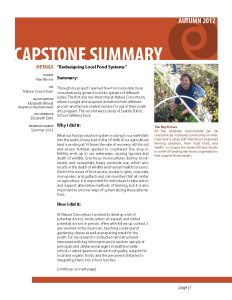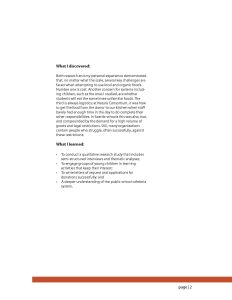Redesigning Local Food Systems
Through my project I learned how to incorporate more conscientiously grown food into systems of different scales. The first was my internship at Nature Consortium, where I sought and acquired donations from different grocers and farmers market vendors to use in their youth arts program. The second was a study of Seattle Public School cafeteria food.
What our food production system is doing to our earth falls into the realm of very bad. In the US 90% of our agricultural land is eroding at 10 times the rate of recovery; all this soil and excess fertilizer applied to counteract the drop in fertility ends up in our waterways, causing hypoxia and death of wildlife. Enormous monocultures destroy biodiversity and necessitate heavy pesticide use, which also results in the death of wildlife and human health concerns. Add to this issues of food access, worker’s rights, corporate monopolies, and gutted rural communities that all center on agriculture. It is important for individuals to take action and support alternative methods of farming, but it is also important to uncover ways of systematizing these alternatives.
At Nature Consortium I worked to develop a list of potential donors, wrote letters of request, and visited potential donors in person, often with follow-up contact. I also worked in the classroom, teaching cooking and gardening classes as well as preparing snack for the youth. For my research I conducted semi-structured interviews with key informants and a random sample of principals and cafeteria managers in Seattle middle schools. I asked questions about food quality, support for local and organic foods, and the perceived obstacles to integrating them into school lunches.

